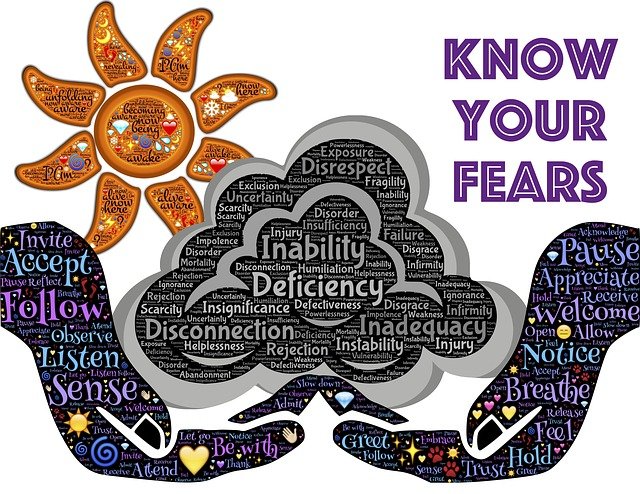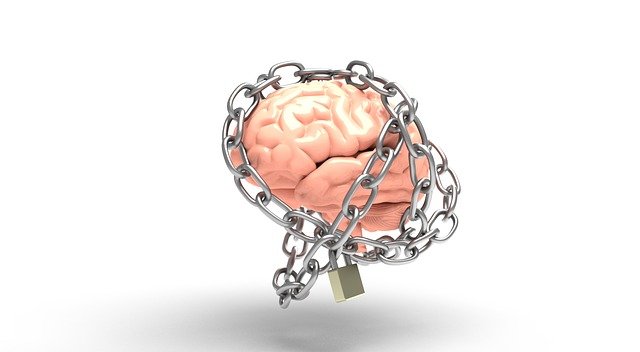Feeling inferior can be a difficult feeling to overcome. It can affect your self-esteem, motivation, and outlook on life. This blog post will provide you with some steps for how to overcome an inferiority complex so that you can find happiness in your day-to-day life. First, we’ll talk about what an inferiority complex is and the causes of it. Next, we’ll go through some solutions for How to Overcome the Inferiority Complex.
Understand what the inferiority complex is
The inferiority complex is the feeling of being lesser than others. It is a psychological issue or state where people feel themselves to be unimportant, humiliated, and worthless compared to other people in their lives.
This low self-esteem can result from various events such as childhood abuse, bullying and criticism by family members, friends or spouses etc. The person feels that they are not good enough for everyone else around them because there’s always someone better than them, either at work or school. And this makes them develop an inflated view of one – how one compares with others becomes more important than what they think about himself/themselves!
Recognize when you are feeling it
You need to recognize when you are feeling it to be able to do something about it. It is important not only for your peace of mind but also because this can affect how you interact with others and how they react back toward you. People who have a high opinion of themselves tend to get along better and socialize more easily than those who have an inferiority complex or low self-esteem. Having a clear understanding and an accurate assessment of one’s strengths and weaknesses will help one know what needs attention first when overcoming feelings of inadequacy. If there is a persistent sense that everything goes wrong no matter how hard one tries, then the person may need professional help from someone trained in dealing with these issues–a psychologist or therapist would be helpful.
Identify the reasons for low self-esteem.
To identify the reasons behind the inferiority complex, you have to be mindful of how you feel about yourself. You can start by identifying the time when your self-esteem was at an all-time low and what the circumstances were surrounding it.
A person’s inferiority complex may be due to several factors that are not easy to identify or change, such as genes, upbringing, environment, etc. To find out the underlying causes behind this disease, one has to assess his current state first in a very detailed manner. For instance, if they believe they are fat, they should look into their diet habits where possible and try changing them accordingly; if they think that other people are better than them because of certain qualities like height, those beliefs need assessment.
Learn to be mindful of your thoughts and actions
You can know your thoughts and actions are a product of your own life experiences, what you have been taught through society about how to behave. You can also know that these thoughts and behaviors create strong feelings in the present moment, which may not be true or healthy for you. That knowledge is enough to make any person feel less inferior because they realize that their current situation isn’t unique and cannot last forever.
- It could help by practicing mindfulness every day with some deep breathing exercises.
- You need to take care of yourself; going back into your inner voice will allow you to think more clearly to speak appropriately.
- Identify negative self-talk: this might sound like someone else telling one how inadequate they feel all the time.
Identify the triggers for your feelings of insecurity.

It’s important to analyze how you react when the triggers happen. They are often caused by an event such as being rejected for a promotion at work or staring into a mirror and feeling ugly because you’re wearing last season’s clothes rather than new clothing that flatter your body type. Once you identify these events, it is easier to understand why you feel insecure and learn how other people may respond in those situations not to affect you anymore.
Challenge negative thoughts and beliefs about yourself
Changing negative thoughts and beliefs about how you see yourself can make a real difference to your self-esteem. It is common for someone with an inferiority complex to think that they are not good enough or smart enough, and these negative thoughts only reinforce the feelings of low self-esteem.
One way to challenge this type of thinking is by challenging these beliefs when they occur in your mind without being judgmental. This starts at first by recognizing them as soon as possible before rationalizing why they might be true, which would lead back to believing those same thoughts again, so try not to get drawn down that path! The next step is then replacing these toxic thought patterns with positive affirmations about yourself (even if you don’t fully believe them).
Stay in control of your emotions.
By practicing mindfulness meditation, you can stay in control of your emotions and thoughts.
To start, try taking just five minutes per day to practice meditation. Sit with a straight spine in a chair (or on the floor) while concentrating solely on your breath. Notice how it feels as you inhale deeply through the nose, then slowly release that air out from both nostrils again into another deep inhalation. Repeat this cycle until no more thoughts or worries are running through your mind about other people, past events or things you need to do later today.
Practice self-compassion by having a positive attitude
A positive attitude towards oneself is key to overcoming the inferiority complex. Be kind and gentle with yourself, as you are more likely to have a positive attitude towards someone else if they show kindness in return. This means being compassionate when faced with mistakes or difficulties and forgiving oneself for any shortcomings that might arise.
We can also help ourselves by practicing self-compassion on an “as needed” basis. For instance, we could stop what we’re doing during our commute home from work for five minutes of deep breathing exercises (or other mindfulness activities) until we feel calm enough to continue driving safely back home. Self-compassion allows us not only to be gentler with ourselves but also helps us recover faster from life’s inevitable challenges.
Practice gratitude each day by writing down three
To overcome inferiority complex, you should practice self-love and gratitude each day by writing down three things you are grateful for, no matter how small they seem.
For example, I am thankful that I have a warm bed to sleep in tonight or something as simple as being glad that my computer is working today to type this blog post. Gratitude helps us feel better about ourselves because it reminds us of all the good we already possess while also increasing our satisfaction with the life we lead.
Gratitude is an effective way to increase feelings of self-worth and build up one’s sense of confidence.
Another mindful technique for overcoming inferiority complex is practicing mindfulness meditation which will help you recognize your thoughts more easily, let go of negativity.
Give yourself credit when you do something well.

Give yourself credit when you do something well, even if it’s just making a healthy meal or doing laundry without being reminded. No matter how small the task may seem to you, acknowledge your accomplishment and give yourself credit for what you’ve done.
When we don’t recognize our accomplishments – when we downplay them or ignore them altogether – this can lead us into feeling more inadequate in terms of what we bring to the table as individuals because others will not be able to see past that facade. This is especially true with social media: because so much of our lives are documented through photos and posts on various platforms, there becomes an inherent pressure to put up only highlight reel images (the best possible moments) while burying the rest out of sight.
Spend time with people who make you feel good
Spend time with people who make you feel good about yourself instead of those who criticize or put you down. Talk to the people in your life that make you feel good about yourself, value what they have to say, and don’t let them walk away from your life because they are just too busy for a chat. You may need more than one person on this list but find at least five.
Urge these friends not to give up when their attempts fail; try again with different strategies until something clicks – there is no such thing as ‘giving up.
Talk openly about how hard it can be being perfect all the time: Give some background information like how many hours per day do you spend working on personal development.
Find meaning in what you do.
When you do relevant jobs, you should not feel like you are not worth anything. It is very important to find meaning in what you do and how it impacts others; this will also help with self-esteem.
It is necessary for people who have low self-esteem to be present in their own lives. They need to commit themselves to these thoughts of being worthy and competent so that they can get the life they want
One way of boosting your confidence level would be through meditation as a practice or just by relaxing under a tree or chilling out at home while reading books.
You should open up about how you feel because frequently, when we cannot talk about how we feel, it leads us to make bad decisions, resulting in lost opportunities.
Some common FAQ’s
How to Overcome the Inferiority Complex?
It is the most important thing that you need to keep your thoughts in check. You have got people around you who will help and support you, so if anything is bothering or upsetting, talk about it.
The next step should be self-acceptance because this will lead to higher levels of happiness. When we are not satisfied with ourselves, then the chances of success diminish significantly.
You must also cultivate empathy for others as they might be feeling inferior too.
This will allow them a chance to feel better. It’s important to focus on making other people happy before thinking about ourselves all the time.
What are the signs of inferiority complex?
An inferiority complex is a feeling of being inferior to others. It is a feeling that you are not good enough or that your accomplishments will never measure up to the expectations set for someone equal to you in status, intelligence, education, etc.
It’s often caused by an inability to be objective about you, and it can lead people into self-destructive behaviors such as drug abuse, alcohol addiction, and even suicide.
One sign of inferiority complex may be excessive admiration towards other individuals who have accomplished more than they have at this point in their life. They may feel like failures because they haven’t achieved what these other people have already attained. This leads them further down the rabbit hole where they start comparing themselves with those around them until finally there’s no one left.
What causes inferiority complex?

The causes behind the inferiority complex are different for everyone. For some, it may be a traumatic event or an early childhood experience that has left them not feeling good enough about themselves. It could also be because they are not as intelligent as those around them at school and college, making them feel like the littlest of all beings.
There can sometimes have significant social influences, too; if you’re constantly being told by friends and family how ugly or stupid you are, this can take its toll over time – even when we know these messages aren’t true!
Some people might find their feelings worsened by what they see in magazines and on television with perfect-looking models who always seem to get everything right, from clothes to careers, partners, etc.
Is inferiority complex a mental disorder?
Inferiority complex is a mental disorder that is characterized by having low self-esteem and are usually in competition or compare with others.
The symptoms of inferiority complex include the feeling that one’s abilities, intelligence, appearance, etc., are substantially less than those of other people; persistent feelings of inadequacy about oneself as an individual (especially when comparing oneself to someone who appears greatly superior).
Inferiority complexes can be triggered by traumatic events such as being bullied during childhood. To overcome this mental disorder, you need to know how your brain reacts and triggers these thoughts/emotions to have more control over them. You need to understand how we perceive ourselves differently because we don’t see our worthiness most time.
At last,
Have you ever felt like people don’t notice or care about you? If so, then the chances are that you may be suffering from the inferiority complex. The good news is there are plenty of ways to overcome it by practicing mindfulness meditation and self-compassion. We can help! Let us know how we can support your journey towards a life of happiness and contentment. You deserve nothing less than what will make you happy in this world because YOU ARE ENOUGH!



